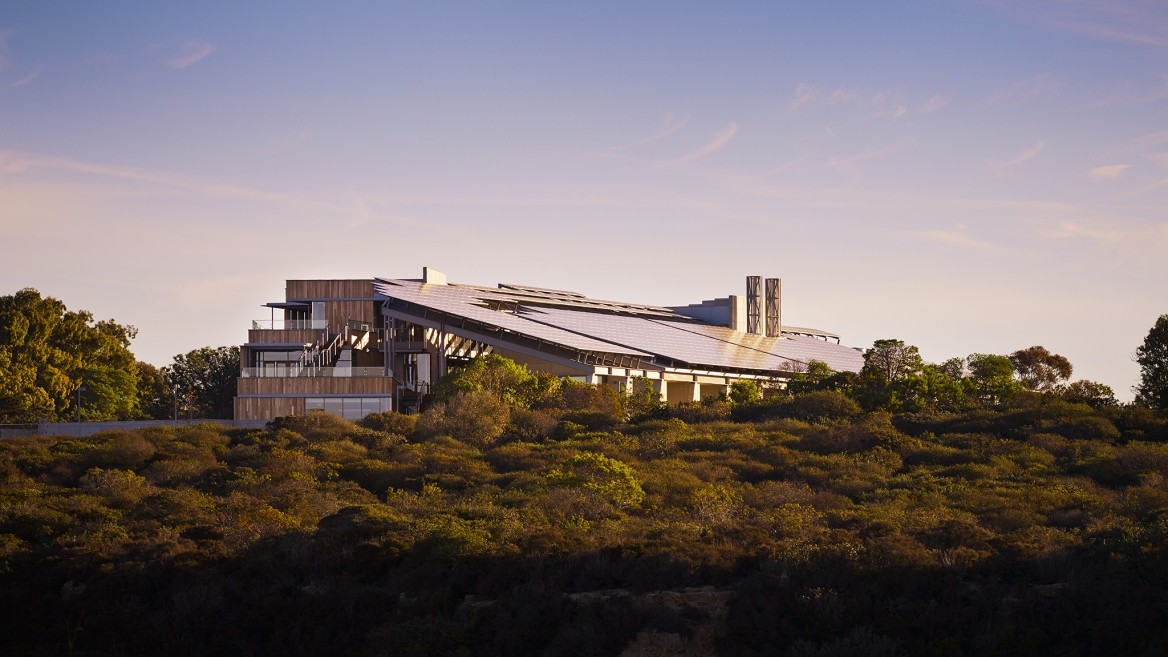J. Craig Venter Institute

Introba provided mechanical, electrical, and plumbing design and commissioning services for the J. Craig Venter Institute in La Jolla, CA, United States.
J. Craig Venter Institute (JCVI) is the world's first zero energy, zero carbon designed laboratory and a leader in all-electric building design. It is a purpose-built facility for research dedicated to genomic research, including flexible wet laboratories for molecular biology, dry labs for cutting-edge computational biology, and office spaces for the approximately 300 researchers and staff.
The mechanical systems incorporate a suite of energy recovery and thermal storage strategies to achieve high-performance energy targets. During daytime cooling, heat is rejected into underground tanks and drawn out overnight for nighttime heating.
The facility uses highly efficient, all-electric heat pumps for peak heating and cooling. Operable windows with coastal views and breezes provide natural ventilation and daylight to all office spaces. When the windows are closed, chilled beams provide cooling and ventilation to the spaces.
The MEP strategies reduced the overall energy consumption by 75% compared to a typical laboratory, allowing the rooftop photovoltaic system to generate enough power to achieve zero net energy operation.
Beyond the energy goals, this project also incorporated a 95,000-gallon rainwater storage system that meets all nonpotable building water demands for most of the year, reducing potable water consumption by 70% annually.
Sustainability
-
LEED Platinum Certified
-
Zero Carbon
-
Zero Net Energy Designed
Project Highlights
-
World's first zero energy, zero carbon designed laboratory and a leader in all-electric building design
-
Mechanical systems use energy recovery and thermal storage strategies to achieve high-performance energy targets
-
High-efficiency, all-electric heat pumps for peak heating and cooling
-
Operable windows provide natural ventilation and daylight
-
Energy reduction of 75% compared to typical laboratory
-
95,000-gallon rainwater storage system for non-potable water, reducing potable water consumption by 70%